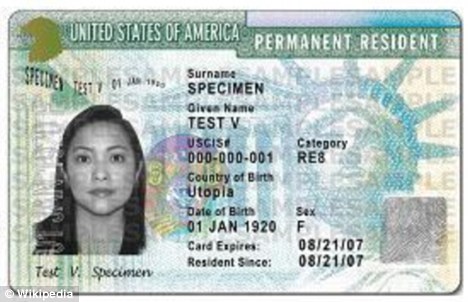“Don’t be afraid, John.” That’s what a friend and client told me recently when she saw I was worried . And I needed to hear those words. It’s been a tough couple of weeks. It’s been a tough few months. And a tough several years, now that I think about it. But she was right – now is not the time to be afraid. Now is the time to be thoughtful, persistent, and bold.
The “American carnage” spoken of by President Trump in his inauguration speech never described the America I know, I love, I fought for, and I believe in. But carnage does accurately describe what is happening right now to America’s rich history of welcoming immigrants and benefiting from immigrants’ experience, education, and work ethic. The Trump Administration is using every means at its disposal to delay, discourage, and deny immigrants a fair shot at making the United States their home.
The list of changes – real changes – this Administration has made to the immigrant story in America is longer than most of us would believe. Here’s an incomplete list:
- Issuing a Presidential Proclamation on April 22, 2020 to ban issuance of new immigrant visas for 60 days. The Proclamation keeps the door open for additional restrictions in 60 days (see below). Members of Congress are pushing the President to make additional bars, including OPT for foreign students and EB-5 immigrant investors.
- And now we have the Presidential Proclamation of June 22, 2020, which indeed enlarges the ban to cover H-1B‘s, L-1‘s, and H-2B‘s. These are work visas – work visas that U.S. companies use to innovate and propel the American economy forward.
- The Muslim ban, which continues to bar legal immigration from several Muslim-majority countries, including Yemen, Iran, Libya, Somalia, and Syria. It was recently expanded to even more immigrants of color, many of them Muslims, including Sudan, Nigeria, and Eritrea. This blanket ban prevents parents and children from reuniting – breaking families every day.
- Imposing a “wealth test” on immigrants seeking to become U.S. Lawful Permanent Residents. The new I-944 form places a major burden on families, increasing the time and expense to apply for a greencard, and discouraging families from even applying for loved ones because the rules are vague and difficult to understand.
- Vastly increasing the number of denials of work visas to immigrants already in the United States. From 2015 to 2017, denial rates of H-1B visas never went above 8%. And why would they? These applicants all have at least a bachelors degree or the equivalent, they are sponsored by U.S. companies that need them, and many earned degrees at U.S. universities. But the Trump Administration has quietly rewritten the rules, giving no deference to previously-approved petitions, issuing Requests for Additional Evidence with little support in the law, thereby raising the denial rate to 32% in early 2019. These are the workers who power our economy, the workers who create jobs (some good news here – after getting thoroughly trounced in the Federal Courts, USCIS has rescinded the Memorandums it used to reach these denial rates – we’ll see what happens next).
- Slowing the adjudication of applications for green cards and U.S. citizenship. The USCIS changed its policy and made interviews mandatory for employment-based immigrants. This increased USCIS’ greencard backlog more than 35%. And is actively delaying greencards for families and workers, not to mention delaying citizenship.
- Actively eroding the Immigration Court system’s integrity. The attack on the Immigration Court system is especially brutal. Setting case quotas for immigration judges. Hiring immigration judges with no experience in immigration law. Hiring Appellate Judges based on their high denial rate for asylum, even when those Judges have a history of formal complaints against them. Using the Attorney General certification process to erode protections for asylum seekers who are victims of domestic or gang violence. Removing Immigration Judges from cases where the agency believes they will not make the predetermined decision they want. And raising fees for appeals to rates not even applied by the U.S. appellate courts, thereby seeking to choke off appeals before they are even filed. This attack on Due Process – a right guaranteed by the 5th Amendment – is an attack on justice itself.
And there are more. Literally, too many to list in this blog post. It’s easy to feel despair. But despair is not the answer.
The answer, as long as there have been immigrants seeking to come to America, is “don’t be afraid.” And Immigration Attorneys’ role in pushing back has never been more important. We must use every ounce of our skill, knowledge, experience, and devotion to keep their clients here and ultimately successful.
Don’t be afraid to litigate every case. Immigration attorneys are powerful. We win cases in courts where judges are weak, the government is strong, and our clients are presumed guilty. Litigation in immigration court was once described as trying to operate on a patient with an assassin in the room. To win, we must be agile, resourceful, and persistent, using our knowledge, experience, and wits to find solutions that win cases for our clients. We have to do so even in these times when Due Process, and the Rule of Law, is being actively corroded from the top. We, as attorneys, must have the courage to fight the cases. And to be there by our clients’ side when the judge grants their case, or orders them deported – effectively banished from family, friends, and businesses they have often worked for decades to build. To litigate these cases makes us stronger. We must remember that government or immigration judges don’t sit beside a client who broke down in tears preparing for trial, who developed blisters on their face and hands from anxiety over recounting the reason they fled their home country. We do. And that makes us better attorneys, because we understand what is at stake, even though over time we are ourselves traumatized by it. Don’t be afraid. Be a litigator.
Don’t be afraid to use all the tools at your disposal. Immigration Law is not fair. It was never fair. I draw inspiration from HIAS, the Hebrew Immigrant Aid Society. In 1917, the U.S. Congress passed the Literacy Act, and this was quickly followed by the Immigration Act of 1924 which set harsh and unfair quotas intended to restrict immigration. These restrictive measures led to many deportations from Ellis Island. HIAS didn’t give up. They went toward the fight, and even set up their own office on Ellis Island. HIAS provided translation services, guided immigrants through screenings, lent them the $25 landing fee, obtained bond for others guaranteeing employable status, and argued before Boards of Special Enquiry to prevent deportations. Between 1909 and 1919, HIAS interceded with 28,884 immigrants detained for a Board of Special Enquiry; they won 22,780 and lost 6,104 cases. That means they lost more than a fifth of their cases. But because they were not afraid to fight, they ultimately saved 22,780 souls – souls who built families and businesses and lives in the United States. The success of HIAS during a period of time very similar to the one we are living in now shows how valuable attorneys can be to the immigrants we serve. We know the law – and the regulations, cases, memoranda, and operating instructions that control USCIS and the immigration courts. We know how to enlist the help of Senators and Representatives for assistance moving a case toward completion. And we know how to draft, file, and argue for assistance from Federal Courts, including Petitions for Writs of Mandamus, Petitions for Writs of Habeas Corpus, and Complaints for a Declaratory and Injunctive Relief. It is our responsibility to use all the tools we have to defend and advance the interests of our clients.
Don’t be afraid to file applications. The Trump Administration has made a concerted effort to kill legal immigration by all the means at its disposal. An egregious example discussed above is he I-944, which has placed a great burden on families seeking to stay together and reunite. As noted above, the requirements of the I-944 require extensive documentation, far more than required before, and more than is necessary to demonstrate sufficiency, and has been described as “an administrative strip search.” The purpose of this form, clearly, is to dishearten, confuse, and intimidate immigrants seeking to file applications for their relatives and loved ones, as well as to make it more difficult for employment-based immigrants to complete the greencard process. Again, don’t be afraid. Remember that the adjudication of these forms is complex, and officers must weigh potentially unlimited factors to determine whether the applicant is or is likely to become a public charge. That means it remains a gray area – the area where attorneys do our best work, because the answer can be what our clients need it to be. Gray areas invite persuasion, and if that doesn’t work, litigation. Make a good faith effort, follow the law, and file the applications. If we don’t file, the answer is always “no.” That’s exactly what this Administration wants. Don’t be afraid.
Don’t be afraid to try again. And again. And again. Because keeping our clients here in the United States is more than half the battle. As immigration lawyers, we understand that Immigration Law changes every day, whether through memoranda, court decisions, or even a tip you learned from a USCIS officer at an interview. A client with an unwaivable ground of inadmissibility on Wednesday may be saved by a Board of Immigration Appeals decision on Thursday (I literally had this happen to several lucky clients when Matter of Arrabally was issued, drastically changing the consequences of traveling on Advance Parole). A retired Chief of Cardiology at a prestigious hospital once confessed to me that as a young immigrant from Turkey he had been ordered deported. But he had an excellent immigration attorney who obtained then-available “indefinite voluntary departure.” The future physician managed to find relief while on indefinite voluntary departure, was granted a greencard, went to medical school, and no doubt saved thousands of American lives during his career. It took persistence and grit for your client to get to the United States. We have to show those same qualities as we advocate for our clients, because many of them, even most, they will eventually obtain legal status if they are here long enough. Don’t be afraid.
Of course, there is a difference between being bold and being reckless. This Administration has made mistakes costly. For example, it moved to refer unsuccessful applicants for benefits to the Immigration Courts for removal (previously known as “deportation”) proceedings. This includes when an applicant for a U visa (victim of crime) and victims of domestic violence seeking VAWA (“Violence Against Women Act”) protection. Careful consideration must be given to weighing benefits against risks. Attorneys know this area well – risk management and mistake avoidance are the cornerstones of a good legal education. And we have an important role to play for our clients, because a good immigration attorney knows how all the parts of immigration work. As one former INS spokeswoman, Karen Kraushaar, stated in 2001, “”Immigration law is a mystery and a mastery of obfuscation, and the lawyers who can figure it out are worth their weight in gold.” There are no perfect lawyers (or perfect physicians, for that matter). But proficiency, passion, persistence, and experience can make all the difference in the decisions that we and our clients take.
In sum, the Trump Administration is far from finished in its crusade to delay, deny, and stop immigrants from making the United States their home. Their plan is well underway, and they are working furiously to implement as many changes as they can under the cover of COVID-19 and unemployment. Immigrants desperately need excellent immigration attorneys. Now, 110 years after HIAS opened its office on Ellis Island, it is time for immigration attorneys to step forward for our clients. Now is the time to push back and advocate for our immigrant clients and their families. Whether an immigrant investor or a victim of gang violence, our clients have already risked their education, their livelihood, and often their lives to join each of us in building America into a unique country that rewards ambition, investment, competition, and risk-taking to constantly improve and re-invent itself. Don’t be afraid.
If you need legal advice, or would like to review your immigration options, please contact our office at (610) 664-6271 or visit our website to schedule a consultation.
The information provided on this website does not, and is not intended to, constitute legal advice; instead, all information, content, and materials available on this site are for general informational purposes only. Information on this website may not constitute the most up-to-date legal or other information. Readers of this blog should contact our office or their own attorney to obtain advice with respect to any particular legal matter. No reader, user, or browser of this site should act or refrain from acting on the basis of information on this site without first seeking legal advice from counsel in the relevant jurisdiction. Only your individual attorney can provide assurances that the information contained herein – and your interpretation of it – is applicable or appropriate to your particular situation. Use of, and access to, this website or any of the links or resources contained within the site do not create an attorney-client relationship between the reader, user, or browser and the law firm of Hogan & Vandenberg or its employees.
 relationships has changed. Also, no one knows exactly what President Trump will do about undocumented immigrants after he is
relationships has changed. Also, no one knows exactly what President Trump will do about undocumented immigrants after he is 

 in the United States – I’m thinking immigrants with work visas, or greencards, or you are petitioning for a relative who is overseas – you should be OK.
in the United States – I’m thinking immigrants with work visas, or greencards, or you are petitioning for a relative who is overseas – you should be OK.
